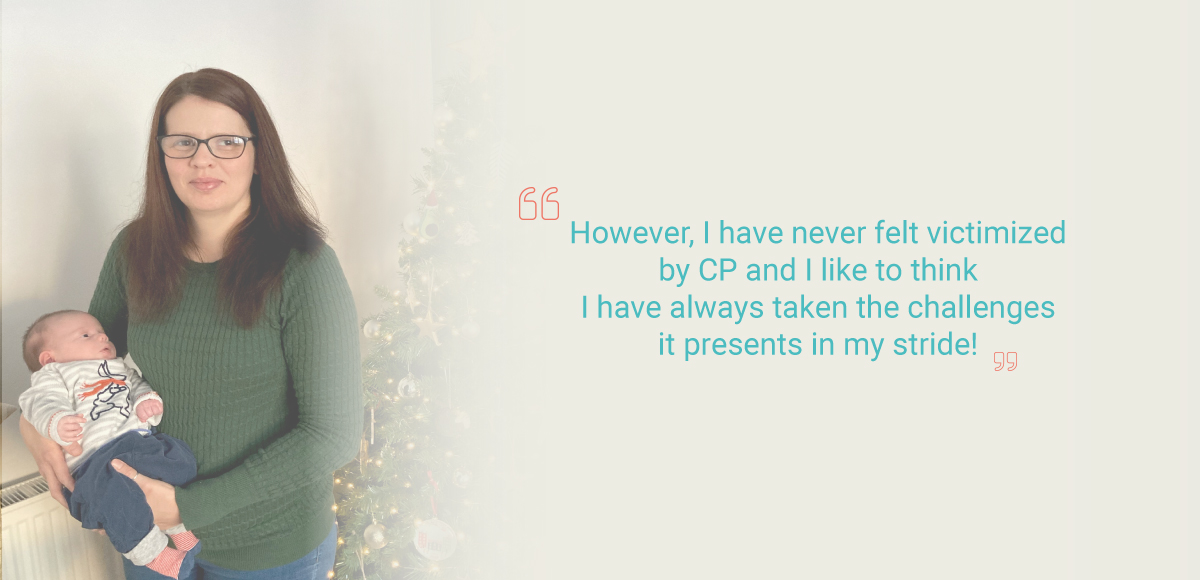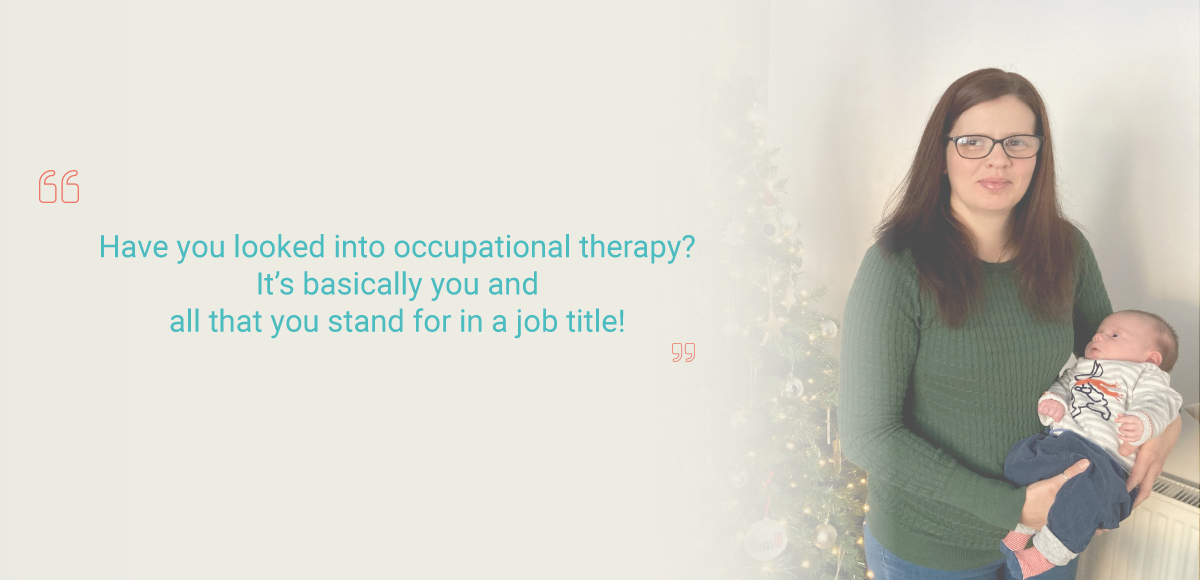Happy New Henry!

Occupational therapist, Louisa Hasseldine proves cerebral palsy (CP) is no barrier to bearing fruit - both professionally and personally!
In our new series supporting the Royal College of Occupational Therapy’s mission to increase diversity in the profession, meet Community Senior OT, Louisa Hasseldine who, due to CP, was born without the innate ability to walk.
Born prematurely, Louisa struggled to reach expected developmental milestones, and by the age of 17 months had been diagnosed with spastic diplegia, a subtype of cerebral palsy (CP) mainly affecting the legs.
How Louisa then went on to become an OT to promote independence in other people is testimony to her own strengths and coping strategies.
Henry, her first child, was born in November after a pregnancy fortunately free of anticipated CP-related complications. This is Louisa’s story.
 I like to think that we all have challenges - mine happened to be a diagnosis of CP. It’s all character building!
I like to think that we all have challenges - mine happened to be a diagnosis of CP. It’s all character building! 
At a young age, I began the journey of regular consultant appointments, where options and viable procedures were discussed with my parents to find ways to improve my chances of ultimately being able to mobilise.
This journey started with serial casting of both lower limbs in an attempt to stretch my Achilles tendons so I could try to put both feet flat on the floor - a good starting point!
It was not particularly successful in the long term; however, over the next year, I began to find my own rhythm and put one foot in front of the other, relying on:
- sheer determination.
- building a high tolerance for discomfort and lots of muscle spasms.
- loads of patience.
- lots of input from my parents.
- weekly hydrotherapy sessions.
It may be worth mentioning that as a result of the brain damage primary to the cerebral palsy, I did not have the innate ability to walk.
I had to find the patience with myself to gradually build the neural patterns within my brain which, thankfully, meant that, in time, placing one foot in front of the other began to feel less effortful and more natural.
At the age of 7, I was able to walk outdoors but still used a wheelchair during school hours due to fatigue and a huge risk of falls.
At 15, I had further surgery to lengthen my Achilles' tendons; painful but, at that age with 8 weeks off school, who would decline?! This surgery was of some benefit.
On reflection, I felt a little different from others growing up as I was physically unable to do lots of activities with my friends and family and was sometimes treated differently by those who did not understand my difficulties.
I feel incredibly blessed that I am fiercely independent and have been able to engage in and enjoy life.
It may come as no surprise that my experiences and challenges related to CP were really the catalysts for my passion for enabling and promoting independence.
From a young age, I was told by my then consultant that I should run for a place in parliament to advocate for those with disabilities.
Of course, I did not take this seriously at the time. However, the sentiment stuck with me. I knew I wanted to belong to a profession that was centred around people and quality of life.
Whilst at college studying for a National Diploma in Health Studies, I began researching my options when my college tutor casually asked:
I began looking into it and knew, from that point forward, that I would do all that it took to become an OT, as my tutor was right: the principles and ethos underpinning OT really resonated with my personal experiences and outlook on life.
I knew I wanted to channel my experiences into tools to help others achieve their goals, no matter how big or small.
Having CP has positively affected my professional life. I feel I have the personal attributes and experiences to really empathise with others.
I think this enables me to help them overcome difficulties and live a life that may be woven with fibres of hardship but, ultimately, becomes a life full of meaning.
I feel that my experiences alongside my professional skills really are the bread and butter of building a strong rapport with my clients and ultimately helping them to achieve and live a life they love.
I believe I have a deeper understanding that is enriched by my professional skills, which often leads to great outcomes and successful interventions.
 When we are able to recognize difficulty as a way to think outside the box, we become creative in our approach to overcoming obstacles.
When we are able to recognize difficulty as a way to think outside the box, we become creative in our approach to overcoming obstacles. 
Related articles
Find out more about occupational therapy for neurological conditions here:
Krysalis Neuro OT - What we do
and
Occupational Therapy a Guide for Individuals and Professionals
Further information on Cerebral Palsy can be found here: https://www.nhs.uk/conditions/cerebral-palsy/


